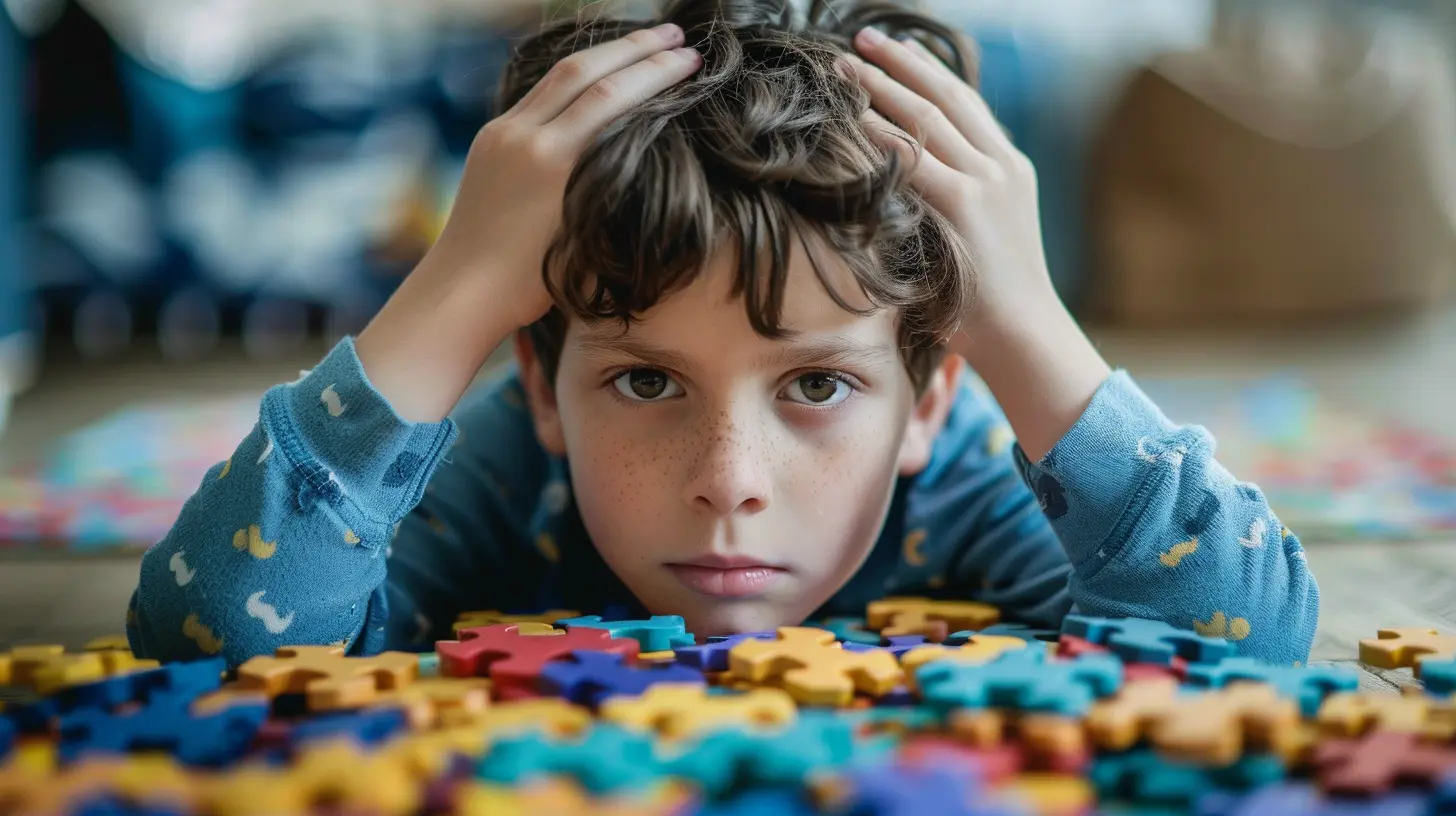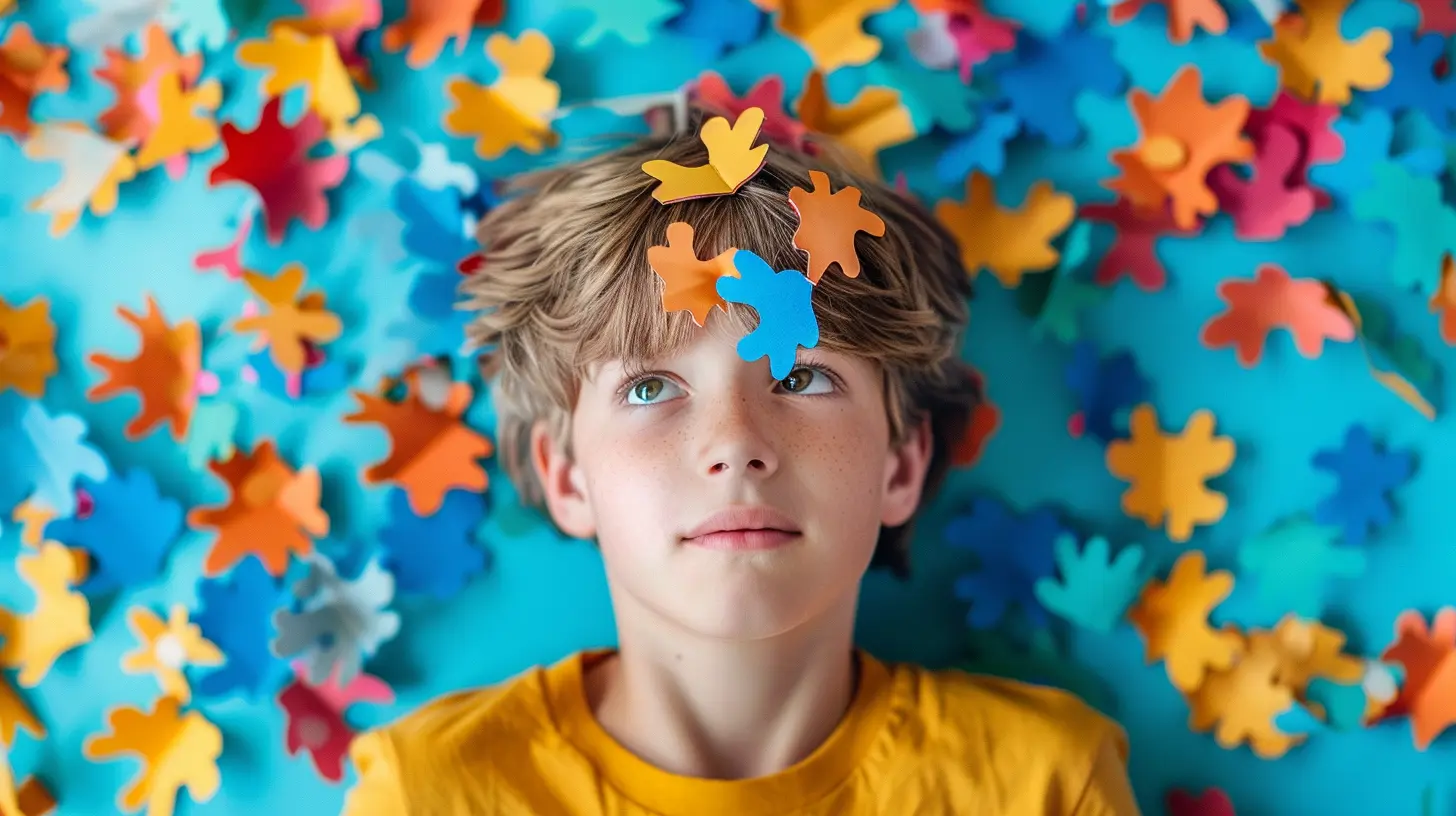How to Help Your Child Develop Coping Strategies for Learning Challenges
23 June 2025
Every child is unique, and so is their learning journey. While some kids breeze through school, others may hit a few speed bumps along the way. If your child is facing learning challenges, you're not alone—and most importantly, neither are they.
Figuring out how to help your child develop coping strategies for learning challenges might feel overwhelming at first. But guess what? You don't need to be a psychologist or an educational expert to make a real difference. You just need patience, love, and a little strategy.
Let’s talk about real-life, practical ways to support your child’s emotional resilience and academic growth.
What Are Learning Challenges, Anyway?
Before we dive into the tips and tools, it’s important to understand what we’re actually dealing with. “Learning challenges” is a broad term. It can include:- Dyslexia (trouble reading)
- ADHD (difficulty paying attention or sitting still)
- Dyscalculia (math struggles)
- Auditory processing issues
- Executive functioning deficits (organization and time management woes)
Sometimes, these come with emotional struggles too—like anxiety, frustration, or low self-esteem. And yep, it can be tough to watch. But here’s the good news: With the right support, your child can absolutely thrive.
Why Coping Strategies Matter
Imagine trying to build a house with no tools. That’s how a child might feel trying to manage learning difficulties without coping strategies.Coping strategies are the tools that help kids:
- Manage stress
- Stay motivated
- Bounce back from setbacks
- Feel more confident in their abilities
Helping your child build these tools is one of the most important things you can do—not just for school, but for life.
So how do you do that? Glad you asked.
1. Start with Empathy
Let’s be real—school can be hard even for kids who don’t have learning challenges. For those who do, it can feel downright defeating. That’s why your first job isn’t to fix anything. It’s just to listen.When your child says, “I’m dumb,” or “I can’t do this,” take a deep breath. This is your chance to shift the narrative.
Try This:
- Acknowledge their feelings: “I know this is really hard for you right now.”- Validate their struggle: “Reading doesn’t come easy for you—and that’s okay. Everyone has different strengths.”
- Share your own experiences: “I used to get stomachaches during math class too!”
Empathy builds trust. And trust opens the door to real, meaningful progress.
2. Focus on Strengths, Not Just Struggles
It’s easy to get caught up in what your child can’t do. But what about what they can do?Maybe your child struggles with reading, but they’re amazing at building Lego constructions. Or maybe they can’t sit still for long, but they can tell the most incredible stories. These strengths can become powerful sources of confidence and self-worth.
Pro Tip:
Create a “Strengths Board” at home. Use sticky notes or drawings to highlight all the things your child is good at—from being a kind friend to beating video game levels.This visual reminder helps them see: “Hey, I'm more than my challenges.”
3. Teach Self-Talk (The Good Kind)
We all have that little voice in our heads. For kids with learning differences, that voice can be super mean: “I’ll never get this.” “I’m dumb.” “Everyone else is smarter than me.”Let’s help them change the script.
Teach Them to Say:
- “This is hard, but I’m trying.”- “I’ve done hard things before, I can do this too.”
- “I might need more time—and that’s okay.”
Positive self-talk doesn’t mean ignoring the struggle. It means facing it with kindness and courage.
4. Break Big Tasks into Bite-Sized Pieces
Trying to eat a whole pizza in one bite? Nope. Same goes for learning.Kids with learning challenges often get overwhelmed by complex assignments. Help them break these down into smaller, manageable steps.
For Example:
If your child has to write a book report, walk them through:1. Pick a book
2. Read 10 pages a day
3. Write down 3 interesting things
4. Draft the intro paragraph
5. Write the conclusion
Small wins create momentum—and momentum builds confidence.
5. Create a Safe Learning Environment at Home
Let’s face it, no one does their best thinking in a chaotic or stressful space. Your home environment plays a huge role in how well your child can cope with learning challenges.Tips to Try:
- Set up a quiet, clutter-free learning zone- Use visual schedules to map out homework time
- Keep supplies organized in labeled bins or drawers
- Allow for brain breaks—sometimes a dance party is the best form of therapy!
Remember, home should feel like a safe place to learn, mess up, try again, and succeed.
6. Partner with Teachers and Specialists
You don’t have to do this alone. Teachers, school counselors, special education professionals—they’re all part of your team.Be proactive in reaching out:
- Ask for progress reports
- Request accommodations, like extra time on tests
- Explore IEPs or 504 Plans if needed
Collaboration ensures your child gets consistent support, both at school and at home.
7. Normalize Mistakes and Celebrate Effort
We live in a world that’s obsessed with perfect grades, trophies, and test scores. But you know what matters more than perfection? Progress.Help your child see mistakes as stepping stones, not stop signs.
Instead of saying:
"You got that wrong."Try:
"What did you learn from that?"And don’t forget to cheer them on—not just for A’s, but for trying, sticking with it, and asking for help.
8. Use Visual Tools and Tech
Many kids benefit from seeing, not just hearing, information. Visual aids can be game-changers.Things That Help:
- Mind maps- Charts and diagrams
- Color-coded folders
- Educational apps and audiobooks
There’s no shame in using tools. It’s like giving a builder a hammer instead of asking them to nail boards with their fists.
9. Practice Mindfulness Together
Kids dealing with learning difficulties often carry a backpack full of stress. Teaching them simple mindfulness techniques can help lighten the load.Try This Simple Exercise:
- Take five slow, deep breaths together- Ask them to name 3 things they can see, 2 they can hear, and one they can feel
These techniques calm the nervous system and sharpen focus. Plus, they’re quick, free, and easy to use anytime.
10. Encourage Hobbies Beyond Academics
School isn’t everything. Sometimes the best way to cope is to dive into the things that make you feel alive.Whether it’s painting, skateboarding, baking, or coding—hobbies offer:
- A sense of achievement
- A break from school-related stress
- A chance to shine outside the classroom
Let them explore different activities and find what lights them up. Because when a child feels good about something, they feel better about everything.
11. Be Patient—with Them and with Yourself
There will be tears. There will be tantrums. There will be days when you want to scream into a pillow—and that’s okay.You’re not going to get it perfect every time. Neither is your child. But you’re showing up. You’re trying. And that matters more than you know.
Give yourself grace, just like you give it to them.
Final Thoughts: You’re Their Safe Place
Helping your child develop coping strategies for learning challenges isn’t just about academics. It’s about nurturing their emotional well-being, building resilience, and reassuring them that they are enough—just as they are.You might not have all the answers. But you do have the power to create a home where learning differences are met with compassion, creativity, and confidence.
So take a breath. Show up with love. And keep cheering them on—every step of the way.
They’ve got this. And so do you.
all images in this post were generated using AI tools
Category:
Learning DisabilitiesAuthor:

Janet Conrad
Discussion
rate this article
2 comments
Nym McCoy
This article offers valuable insights for parents navigating their child's learning challenges. Practical strategies and supportive approaches empower kids to develop essential coping skills. Emphasizing patience and understanding can significantly enhance their resilience and confidence in overcoming obstacles. A must-read for caregivers!
December 6, 2025 at 4:16 AM
Erin Yates
Great insights! Practical tips for empowering children, thanks!
July 14, 2025 at 4:13 PM

Janet Conrad
Thank you! I'm glad you found the tips helpful!


